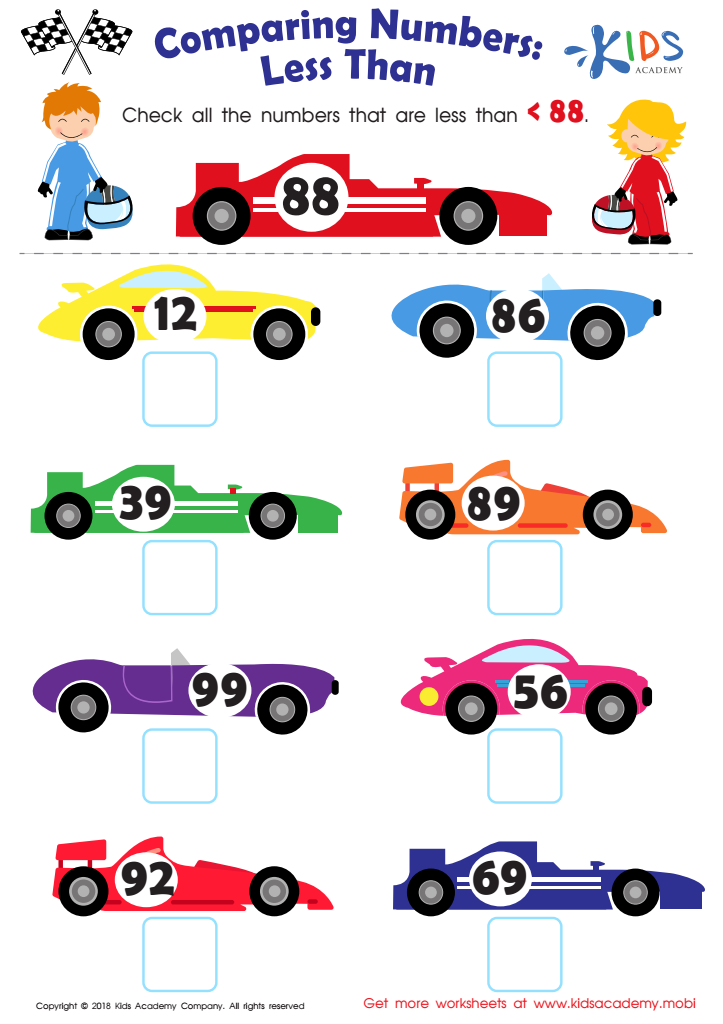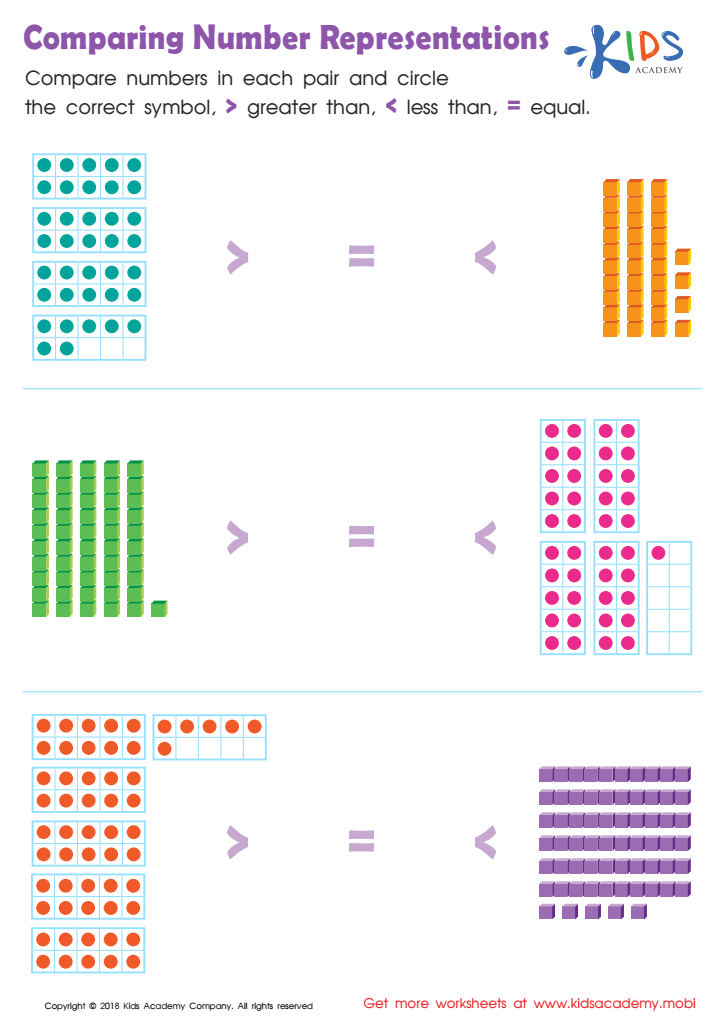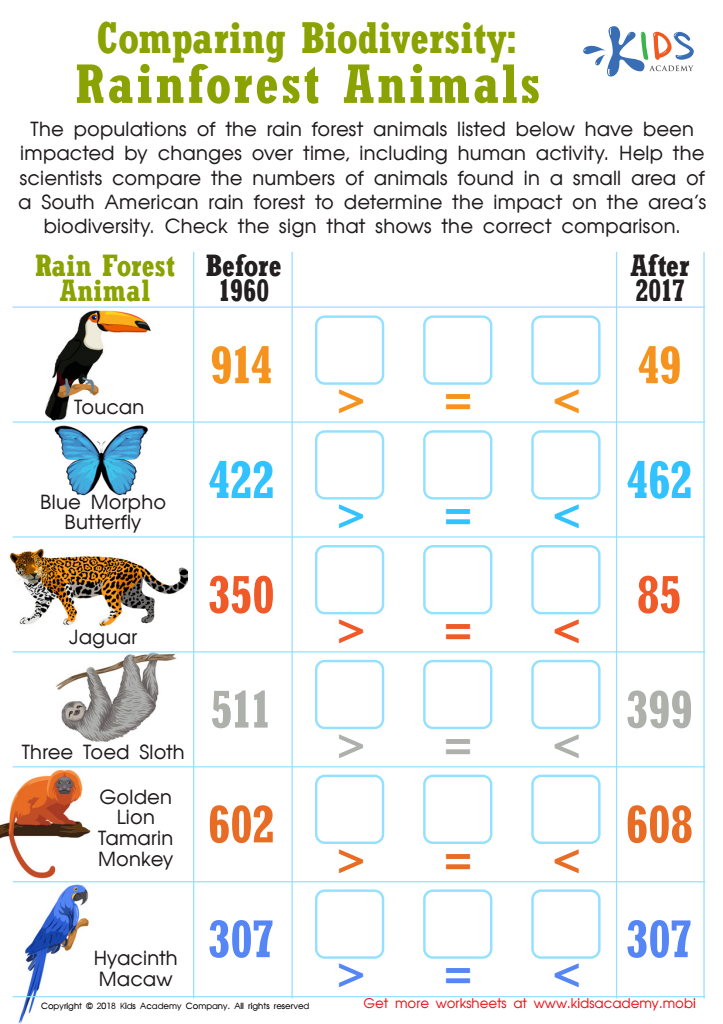Developing analytical thinking Numbers Worksheets for Ages 7-9
3 filtered results
-
From - To
Our "Developing Analytical Thinking Numbers Worksheets for Ages 7-9" are designed to enhance young learners' critical thinking and problem-solving skills. These engaging worksheets encourage children to analyze patterns, sequences, and relationships through fun, age-appropriate mathematical exercises. Each activity aims to build a strong foundation in number sense, helping kids understand and apply concepts like addition, subtraction, multiplication, and division in real-life scenarios. By incorporating colorful graphics and interactive exercises, our worksheets transform math learning into an exciting adventure, fostering a lifelong love for analytical thinking and mathematics. Give your child the tools they need for success!


Less Than Worksheet


Comparing Number Representations Worksheet


Comparing Biodiversity: Rainforest Animals Worksheet
Developing analytical thinking skills in children ages 7-9 is crucial for several key reasons. At this stage, children's brains are highly flexible and capable of forming critical connections that lay the foundation for future learning. Analytical thinking involves breaking down complex problems into simpler parts, making it vital for understanding mathematical concepts, science fundamentals, and even language arts.
For parents and teachers, fostering these skills helps children learn to approach tasks methodically, increasing their ability to solve problems independently and effectively. Analytical thinking also enhances cognitive abilities such as memory and attention, which are crucial for academic success across various subjects.
Children who develop analytical thinking early are better equipped to tackle multi-step problems and can approach new challenges with confidence. This skill set extends beyond the classroom into everyday life, promoting better decision-making and logistical thinking, such as planning, budgeting, and even understanding cause-and-effect relationships.
Furthermore, interactive and engaging activities that build analytical skills can make learning enjoyable, fostering a lifelong love of knowledge and inquiry. Both parents and teachers play vital roles in creating a supportive environment for developing these skills, integrating games, real-world applications, and thought-provoking questions into daily interactions. Therefore, prioritizing analytical thinking is a prudent step toward holistic child development.
 Assign to My Students
Assign to My Students















